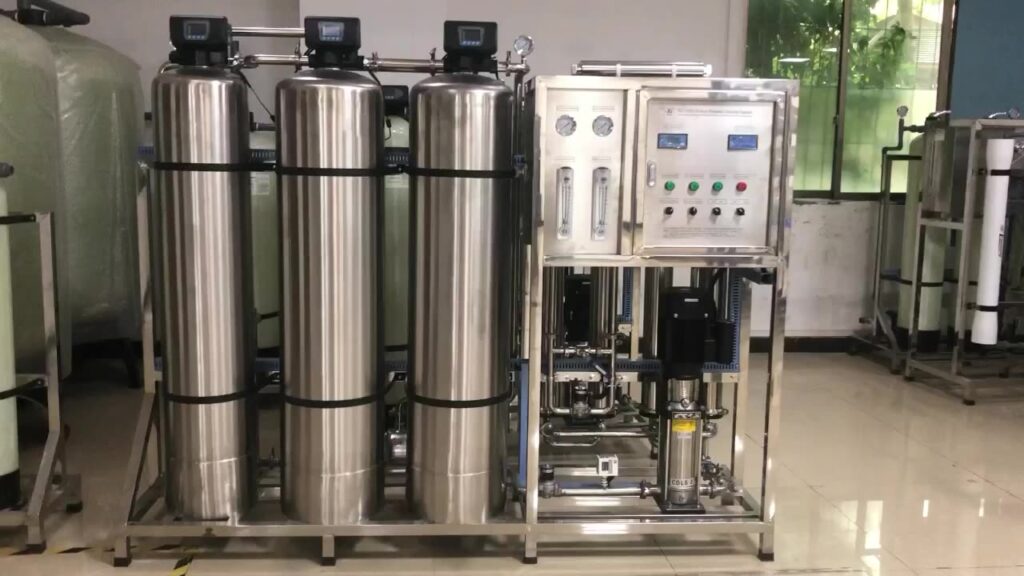In the pursuit of a truly comfortable and healthy home environment, the quality of the water we use often takes center stage. While we diligently focus on the aesthetics and functionality of our living spaces, the crucial factor of water quality can sometimes be overlooked. Hard water, characterized by high mineral content, can silently wreak havoc on our plumbing, appliances, and even our skin and hair. Enter the world of water softeners – the unsung heroes that combat hard water issues. In this guide, we’ll dive into the realm of Salt Free Water Softener Systems for Residential Homes, helping you navigate the options and make the best choice for your living space.
Understanding the Role of Salt-Free Water Softener Systems for Residential Homes
Before we delve into the intricacies of selecting the ideal salt-free water softener system, let’s unravel the importance of addressing hard water issues. Hard water contains an abundance of minerals such as calcium and magnesium. Over time, these minerals accumulate in pipes, appliances, and even on our skin, leading to reduced water flow, diminished appliance efficiency, and a range of other woes. This is where the concept of Salt-Free Water Softener Systems for Residential Homes comes into play. Unlike traditional water softeners that use ion exchange to remove minerals through the addition of sodium, salt-free systems offer an alternative approach. These systems use techniques like template-assisted crystallization or chelation to prevent mineral buildup, sparing you the hassle of dealing with salt or sodium ions.
Key Factors to Consider When Choosing a Salt-Free Water Softener System
The starting point for selecting a salt-free water softener system is to determine the hardness of your water. Professional water testing or DIY test kits can provide insights into the mineral content of your water, helping you choose a system tailored to your needs.
Salt-free water softeners employ various technologies to combat hard water. Template-assisted crystallization creates microscopic crystals that prevent mineral buildup, while chelation involves binding minerals to a molecule to prevent them from adhering to surfaces. Understanding these mechanisms will guide you toward the system that suits your preferences.
Consider your household’s water consumption patterns. The size of the system should align with your needs to ensure optimal performance. Larger households might require systems with higher capacities.
Salt-free systems
Salt-free systems are known for their low maintenance requirements. However, it’s important to research each system’s maintenance needs to ensure hassle-free operation. Additionally, inquire about the system’s lifespan to gauge its long-term value.
Define your water treatment goals beyond softening. Some systems are designed to target specific contaminants, providing comprehensive water treatment. Evaluate your water quality needs to determine if a multi-functional system suits you.
Evaluate the ease of installation and whether the system can be integrated seamlessly into your existing plumbing setup. Some systems might require professional installation, while others are designed for simpler DIY setups.
Prioritize systems that are certified by respected organizations like the Water Quality Association (WQA) or NSF International. Reading user reviews and testimonials can provide real-world insights into the system’s performance and user satisfaction.
Cost is an inevitable factor in any purchase decision. While salt-free systems can have a higher upfront cost compared to traditional systems, factor in the long-term benefits and potential savings on salt and maintenance.
Conclusion
Choosing the right is a step toward creating a healthier and more sustainable living environment. By considering factors like water hardness, technology, household needs, maintenance, water treatment goals, installation, certifications, and budget, you empower yourself to make an informed decision. Whether you opt for template-assisted crystallization or chelation technology, the goal remains the same: to bid farewell to the troubles of hard water without the use of salt. Ultimately, the crystal-clear choice you make will pave the way for a more comfortable and enjoyable living experience, free from the woes of mineral buildup.


